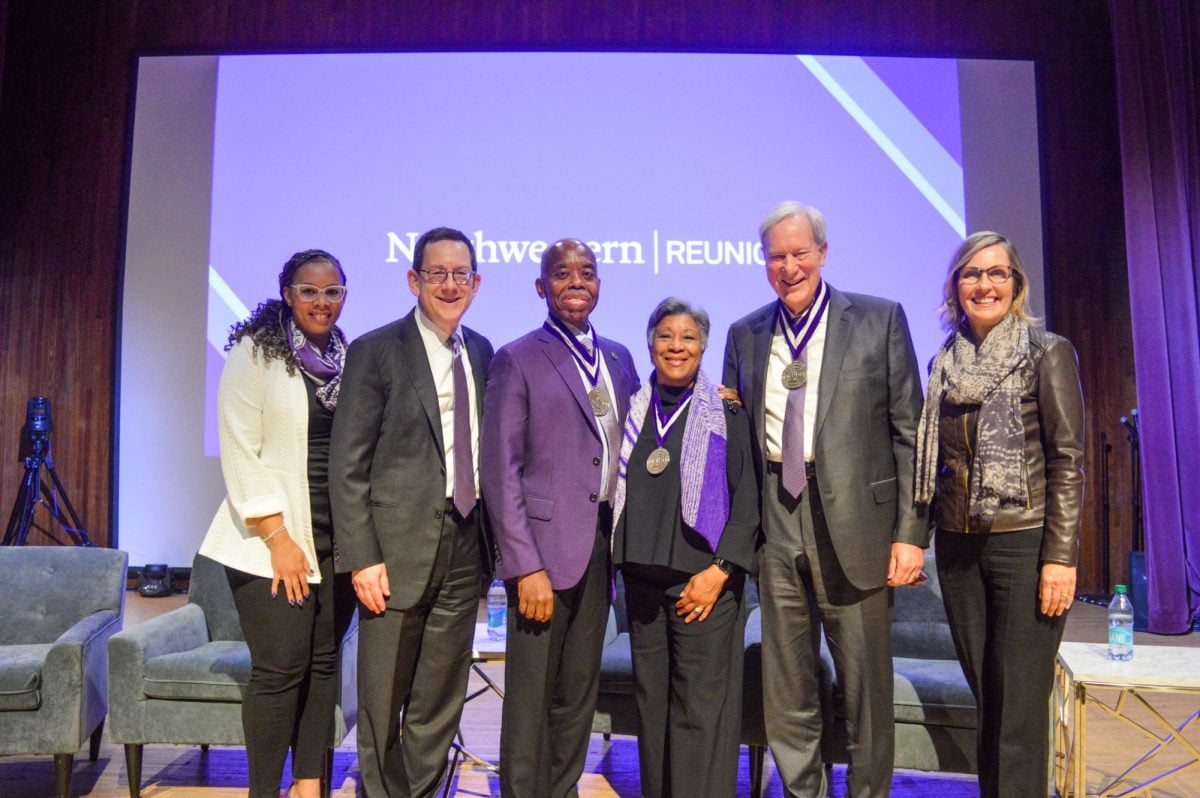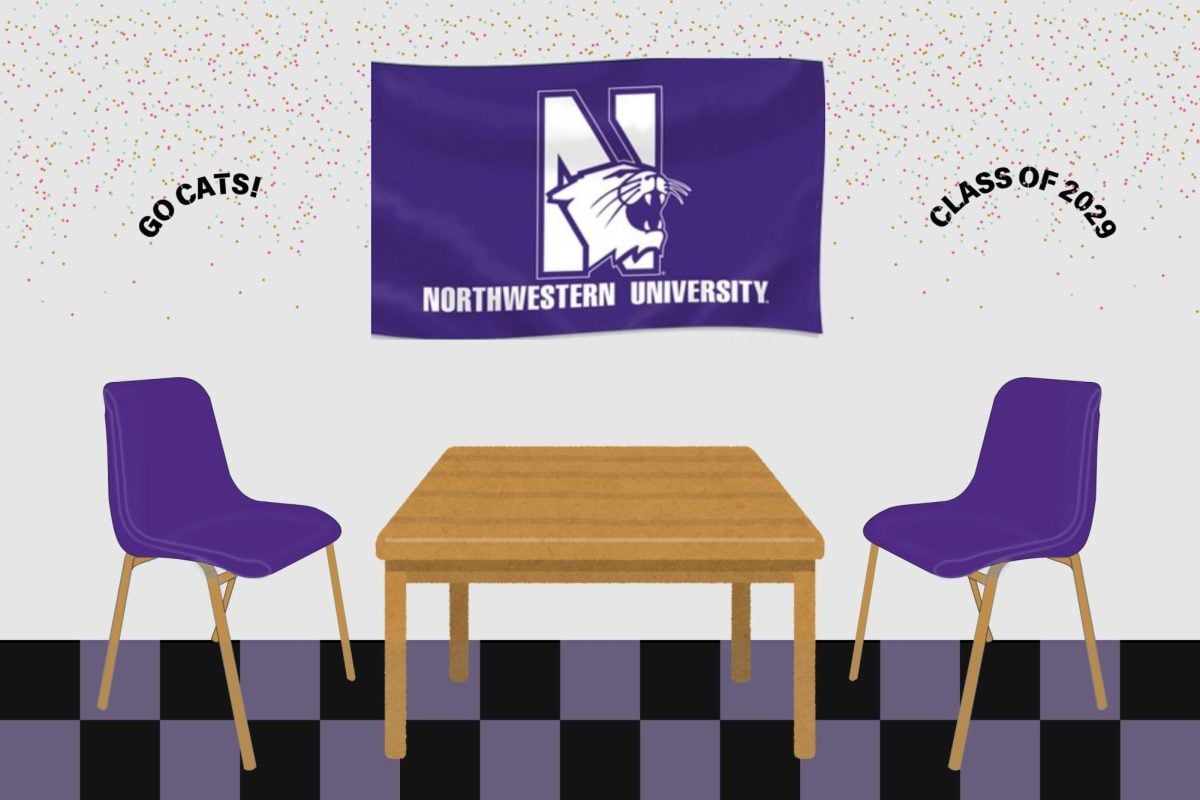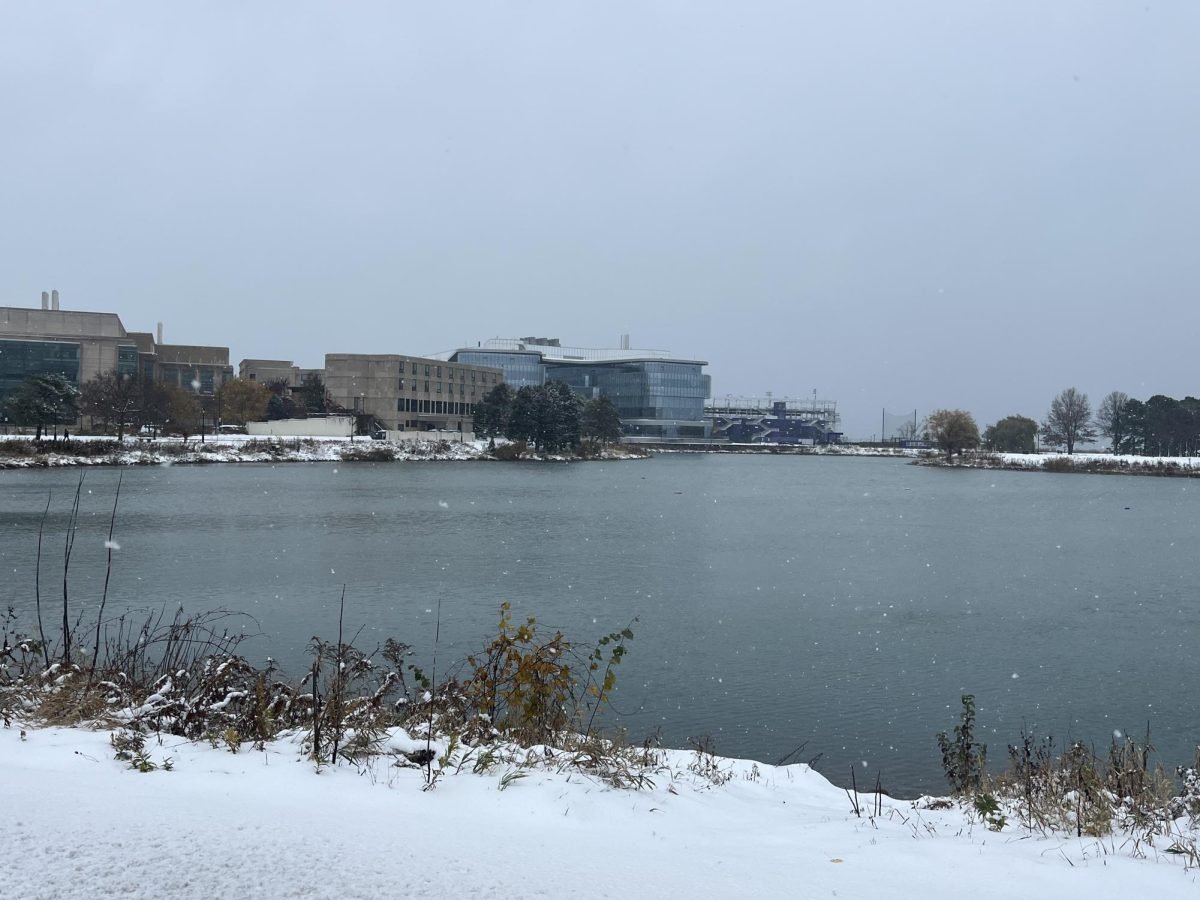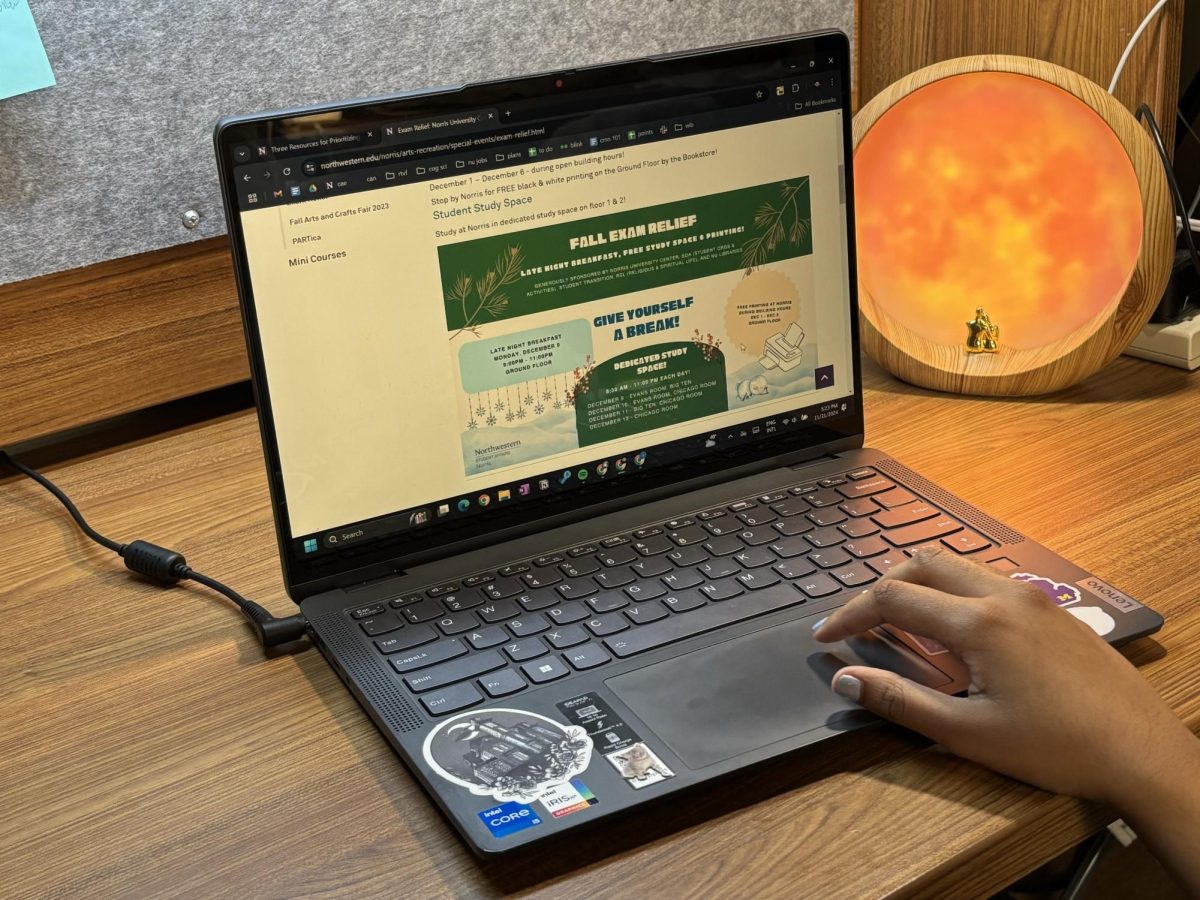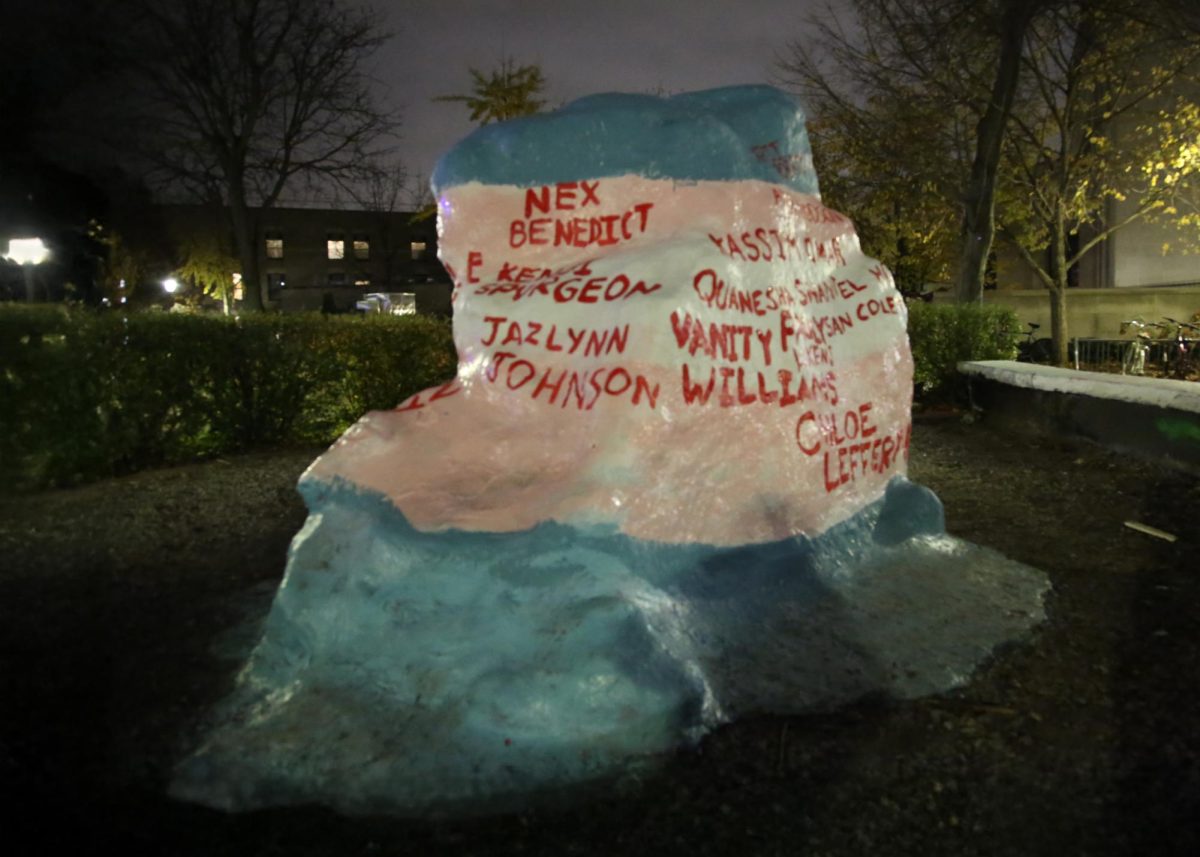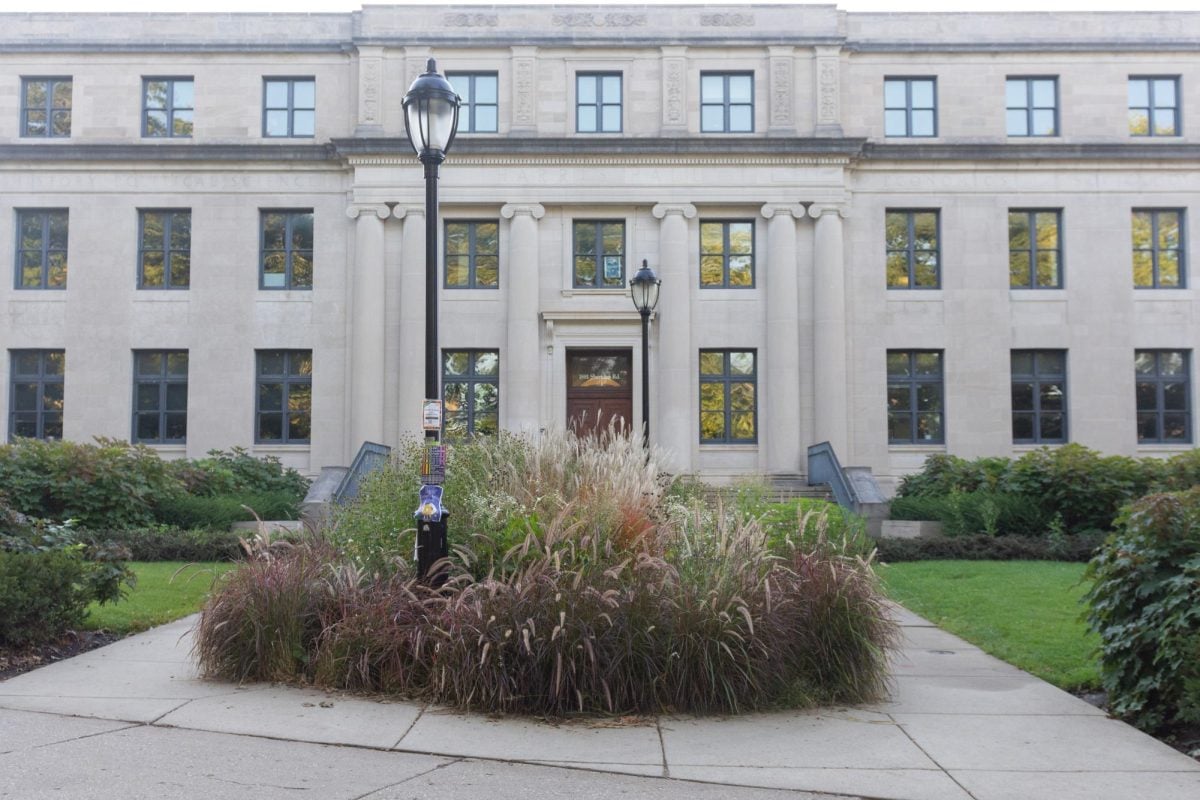A Medill-sponsored event Friday for journalist James Foley (Medill ’08), missing in Syria, shed new light about his whereabouts.
More than 50 students, faculty and Northwestern alumni gathered Friday morning in the McCormick Tribune Center forum to watch a live broadcast of “Silenced Voices: When Conflict Journalists Go Missing.” Held in Boston by Foley’s family and international news outlet GlobalPost, the event marked the 20th anniversary of World Press Freedom Day and 162 days since unidentified gunmen captured Foley in northern Syria near the Turkish border.
At the beginning of the broadcast, GlobalPost CEO and co-founder Philip Balboni announced investigators now believe with “a very high degree of confidence” that the Syrian government is holding Foley in a detention center near Damascus.
Although investigators have had no communications with Foley’s captors, Balboni said GlobalPost representatives are meeting with the Syrian ambassador to Lebanon and are in contact with the Syrian government through diplomatic and private channels.
“We are very hopeful of Jim’s release, and we are totally committed to bringing Jim Foley home safely and as quickly as possible,” Balboni said.
Foley, 39, was reporting 12 miles from the Turkish border Nov. 22 when he was captured. It is believed he is currently detained in a facility controlled by the Syrian Air Force Intelligence service with at least one other Western journalist.
This is the second time Foley, a freelance contributor to GlobalPost and Agence France-Presse, has disappeared while reporting in conflict regions. Libyan soldiers detained Foley and two other journalists in April 2011 and held him for 44 days.
Foley’s parents, who turned to Syrian social media for information in February and initiated a “Free James Foley” campaign, spoke briefly after Balboni’s announcement.
“The angst of his living in captivity returned,” his mother Diane Foley said. “As a family we’ve experienced cycles of anger, frustration, terror, sadness and hope.”
In Boston, Medill Prof. Jack Doppelt moderated a panel of veteran conflict zone journalists, several of whom had also been captured while reporting, including author Roxana Saberi (Medill ’99), Reuters columnist David Rohde, Pakistani journalist Beena Sarwar and AFP correspondent David Clark.
Saberi, who was imprisoned in Tehran and sentenced to eight years for espionage before her conviction was overturned in May 2009, noted the important role her supporters and media had in her eventual release.
“When you find out that people are speaking out for you, it empowers you and makes you feel like you’re not alone,” she said. “It helps you to carry on much more easily.”
The fact that Foley is in the hands of the government rather than insurgents is encouraging, she said.
Baindu Kallon, a member of the Medill Undergraduate Student Advisory Council, said she was interested in the discussion on the hazards of reporting and being captured in conflict zones. The experiences of Foley and the panelists demonstrate the special nature of war reporting, she said.
”The line has been blurred between being a journalist and being involved in a conflict,” the Medill junior said.
Representatives from the Northwestern Alumni Association’s Alumni Regents also attended the broadcast.
“I could sit there and listen for two more hours,” Alumni Regents chair Charles Sansone (Weinberg ’62) said. “We have a lot to be thankful for, that people are willing to literally put their lives on the line to try to get information to the rest of the world about what’s happening.”

